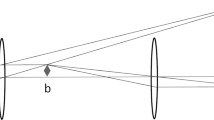Abstract
This paper explores the relationship between common-sense psychology (CSP) and scientific psychology (SP) — which we could call the mind-mind problem. CSP has come under much attack recently, most of which is thought to be unjust or misguided. This paper's first section examines the many differences between the aims, interests, explananda, explanantia, methodology, conceptual frameworks, and relationships to the neurosciences, that divide CSP and SP. Each of the two is valid within its own territory, and there is no competition between them — primarily because CSP is not, and has no interest in being, a ‘scientific theory’. In the second section some implications are drawn. First, neither CSP nor SP has the mind-body problem in its familiar form. Second, CSP, for excellent reasons, is not equipped to handle irrational or non-rational behaviour; there are some grounds for believing that this can and should be the task of SP. Third, ‘philosophical psychology’, or armchair ‘theories’ of action, perception, etc., are doomed to failure. And, fourth, the realm of the psychological is so heterogeneous that no single model for either CSP or SP is likely to succeed.
Similar content being viewed by others
References
Aristotle, Nicomachean Ethics.
Asher, R.: 1972, Talking Sense, Pitman Books Ltd., London.
Cartwright, N.: 1983, How the Laws of Physics Lie, Clarendon Press, Oxford.
Churchland, P. M.: 1981, ‘Eliminative Materialism and Propositional Attitudes’, Journal of Philosophy 78, 67–90.
Churchland, P. S.: 1986, Neurophilosophy, MIT Press, Cambridge MA.
Davidson, D.: 1963, ‘Actions, Reasons, and Causes’, Journal of Philosophy 60, 685–700.
Davidson, D.: 1969, ‘How is Weakness of the Will Possible?’, in J. Feinberg (ed.), Moral Concepts, Oxford University Press, Oxford, pp. 93–113.
Davidson, D.: 1970, ‘Mental Events’, in L. Foster and J. W. Swanson (eds.), Experience and Theory, University of Massachusetts Press, Amherst MA, pp. 79–101.
Davidson, D.: 1974, ‘Psychology as Philosophy’, in S. C. Brown (ed.), Philosophy of Psychology, Macmillan Press, London, pp. 41–52.
Dennett, D.: 1981, ‘Three Kinds of Intentional Psychology’, in R. Healey (ed.), Reduction, Time and Reality, Cambridge University Press, Cambridge, pp. 37–61.
Dupré, J.: 1981, ‘Natural Kinds and Biological Taxa’, Philosophical Review 90, 66–90.
Field, H.: 1978, ‘Mental Representation’, Erkenntnis 13, 9–61.
Fodor, J. A.: 1975, The Language of Thought, Thomas Y. Crowell Co., New York.
Fodor, J. A.: 1987, Psychosemantics, MIT Press, Cambridge MA.
Freud, S.: 1985 (1963), ‘Project for a Scientific Psychology’, in J. Strachey (ed.), The Standard Edition of the Complete Psychological Works of Sigmund Freud, Hogarth Press, London, vol. 1.
Freud, S.: 1920 (1963), ‘Beyond the Pleasure Principle’, in J. Strachey (ed.), op. cit., vol. 18.
Hacking, I.: 1983, Representing and Intervening, Cambridge University Press, Cambridge.
Lipsey, M. W.: 1974, ‘Psychology: Preparadigmatic, Postparadigmatic, or Misparadigmatic?’, Science Studies 4, 406–10.
Lycan, W.: 1981, ‘Toward a Homuncular Theory of Believing’, Cognition and Brain Theory 4, 139–59.
Mandler, G., and Kessen, W.: 1959, The Language of Psychology, New York Publishers, New York.
Mill, J. S.: 1906, A System of Logic Ratiocinative and Inductive, 8th ed., Longmans, Green and Co., London.
Nestle, J.: 1982, ‘Understanding Psychological Man’, Psychology Today 16, 40–59.
Newton-Smith, W. H.: 1981, The Rationality of Science, Routledge and Kegan Paul, London.
Seligman, M. E. P.: 1975, Helplessness, W. H. Freeman and Co., San Francisco.
Stich, S.: 1983, From Folk Psychology to Cognitive Science: The Case Against Belief, MIT Press, Cambridge MA.
Strawson, P. F.: 1959, Individuals, Methuen, London.
Van Fraassen, B. C.: 1980, The Scientific Image, Clarendon Press, Oxford.
Watson, R. J.: 1973, ‘Psychology: A Prescriptive Science’, in M. Heule, J. Jaynes, and J. J. Sullivan (eds.), Historical Conceptions of Psychology, Springer Publishing, New York, pp. 13–28.
Wilkes, K. V.: 1984, ‘Pragmatics in Science and Theory in Common Sense’, Inquiry 27, 339–61.
Wilkes, K. V.: 1986, ‘Nemo Psychologus Nisi Physiologus’, Inquiry 29, 165–85.
Author information
Authors and Affiliations
Rights and permissions
About this article
Cite this article
Wilkes, K.V. The relationship between scientific psychology and common-sense psychology. Synthese 89, 15–39 (1991). https://doi.org/10.1007/BF00413797
Issue Date:
DOI: https://doi.org/10.1007/BF00413797




